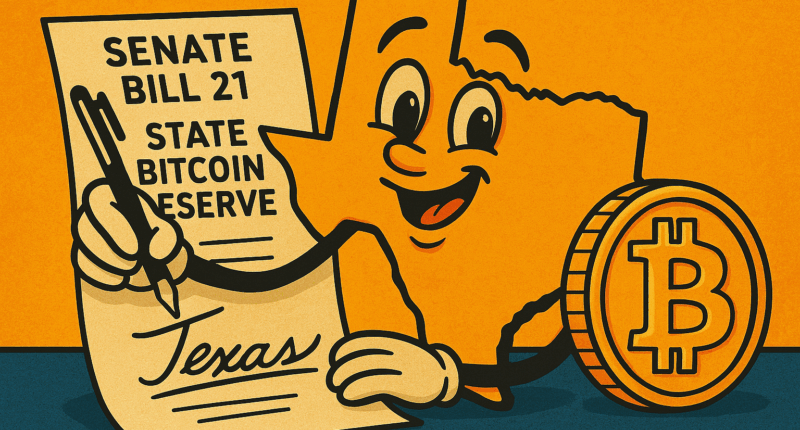The Texas House of Representatives has officially passed Senate Bill 21, a legislation that paves the way for the establishment of a state-managed Bitcoin reserve. Lawmakers voted 101-42, reflecting a strong but not unanimous bipartisan support. It now awaits a concurrence vote on House amendments before heading to Governor Greg Abbott’s desk to be signed into law.
Senate Bill 21 (SB 21) was introduced by State Senator Charles Schwertner to authorize the Texas Comptroller of Public Accounts to create and oversee the Texas Strategic Bitcoin Reserve. Texas aims to diversify its financial holdings and hedge against economic uncertainties.
The bill allows the state to invest in Bitcoin (BTC ) and potentially other cryptocurrencies. But to meet the criteria, the digital assets must have maintained a market capitalization exceeding $500 billion for at least 24 consecutive months. At present, only Bitcoin meets this requirement.
If enacted, Texas will become the third U.S. state, after New Hampshire & Arizona (Scaled-down version of the bill), to maintain reserves in Bitcoin. So far, 27 U.S. states have joined the race to establish state-level Bitcoin and crypto reserves by introducing Bitcoin reserve bills. According to Bitcoin on-chain data aggregator Bitbo, these states have proposed to invest up to 10% of their state funds in Bitcoin and crypto reserves.
With more states considering direct Bitcoin exposure, the movement toward state-level adoption is gaining momentum. These efforts could mark a significant shift in public finance, positioning Bitcoin as a legitimate treasury asset at the state level.





